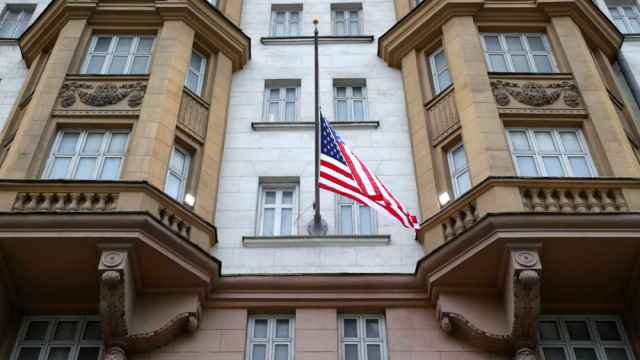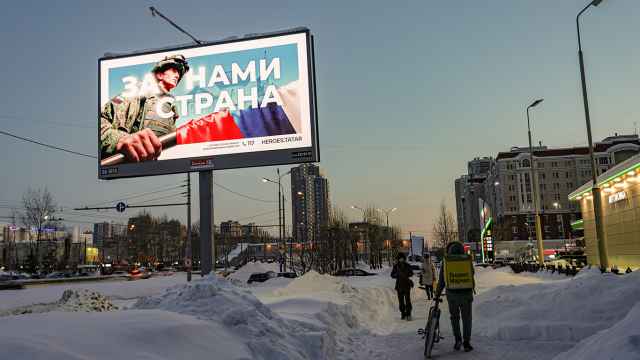South Africa Says Nuclear Power Deal With Russia in Early Stages
South Africa's nuclear cooperation deal signed this week with Russia is part of a tender process that will involve other competing countries and is not a contract to build power plants, government officials said Tuesday.
The Russian atomic agency Rosatom said Monday that it had signed a $10 billion deal with Pretoria to install 9.6 gigawatts of nuclear capacity by 2030 to help Africa's most advanced economy cope with chronic electricity shortages.
However, South African government officials said the agreement was still in the early stages, after the main opposition party criticized the deal.
"There will be a South African procurement process of course. There will be other inter-government agreements signed," Xolisa Mabhongo, an executive at South African state agency Nuclear Energy Corporation, said from Vienna, where the agreement was signed. (Reuters)
Raiffeisen Bank Warns on Russian Operations
Raiffeisen Bank International could lose as much as 500 million euros ($645 million) this year because of problems in Ukraine and Hungary, underscoring the risks of operating in crisis-hit Central and Eastern Europe.
Emerging Europe's No. 2 lender said the conflict in Ukraine and Hungary's campaign to make banks cough up money for misplaced loans were unusual items and that it would make a "mid-triple-digit million euro" profit next year.
The group acknowledged that Russia — its single most profitable market — faces growing pressure from Western sanctions to punish Moscow for its alleged support of separatist rebels in Ukraine and a faltering Russian economy.
"If the new sanctions persist, we cannot rule out that banking relations could be negatively affected from a mid-term perspective," chief executive Karl Sevelda said. (Reuters)
A Message from The Moscow Times:
Dear readers,
We are facing unprecedented challenges. Russia's Prosecutor General's Office has designated The Moscow Times as an "undesirable" organization, criminalizing our work and putting our staff at risk of prosecution. This follows our earlier unjust labeling as a "foreign agent."
These actions are direct attempts to silence independent journalism in Russia. The authorities claim our work "discredits the decisions of the Russian leadership." We see things differently: we strive to provide accurate, unbiased reporting on Russia.
We, the journalists of The Moscow Times, refuse to be silenced. But to continue our work, we need your help.
Your support, no matter how small, makes a world of difference. If you can, please support us monthly starting from just $2. It's quick to set up, and every contribution makes a significant impact.
By supporting The Moscow Times, you're defending open, independent journalism in the face of repression. Thank you for standing with us.
Remind me later.





